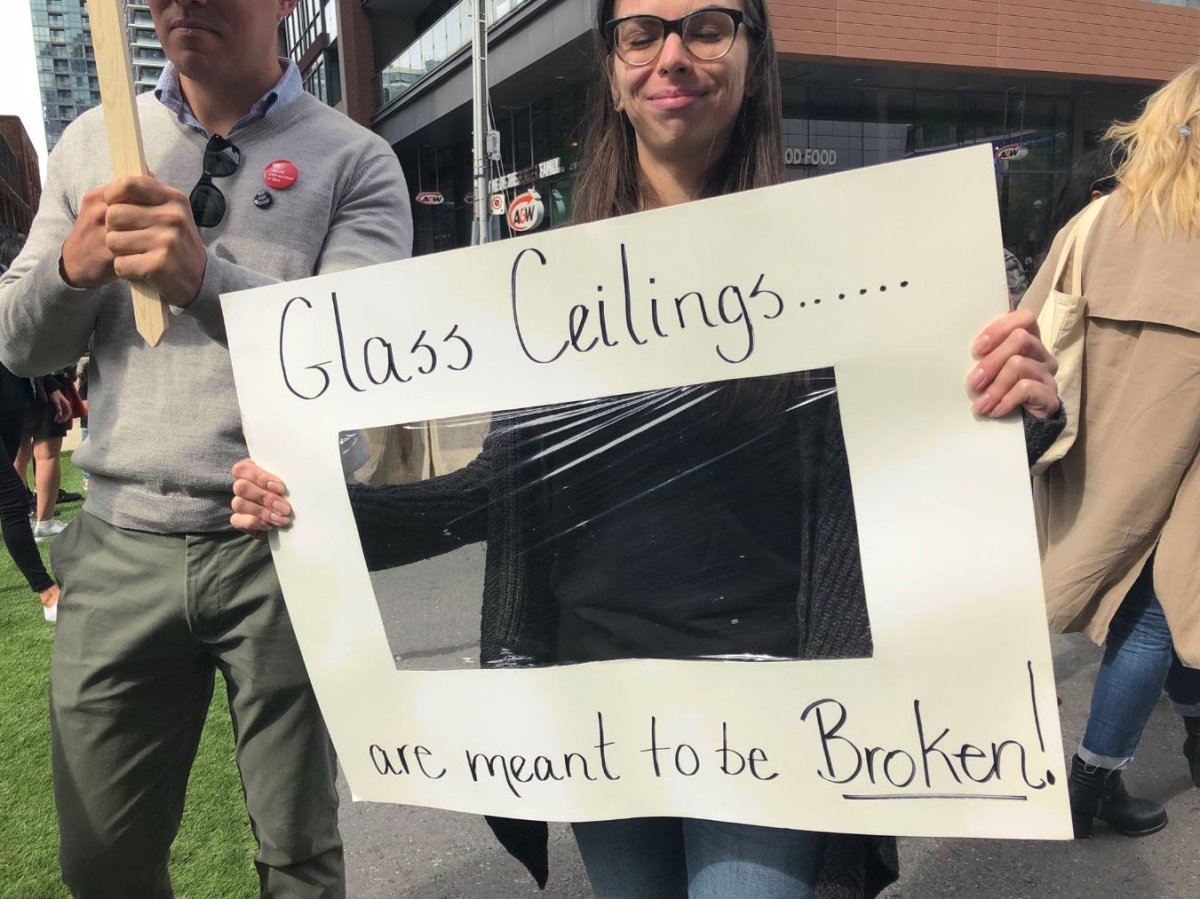An overwhelming majority of Canadian women feel their achievements have been undermined at work, according to a new survey.

The survey, dubbed “The Tallest Poppy” — a nod to the pejorative term for cutting down people thought to be too successful — was done in collaboration with Women of Influence Inc. and puts some startling statistics on women’s work lives.
“The sheer volume of women who had these issues was pretty surprising to us,” said Stephania Varalli, co-CEO of Women of Influence.
More than 1,500 women from across the country of varying seniority in many different industries responded to the survey, sharing stories of having their successes so diminished they became angry, frustrated and disheartened.
Roughly 87 per cent said they felt their big work wins had been undermined, with approximately 83 per cent blaming jealousy as the main driver.
And it’s not just men cutting women down.
- Life in the forest: How Stanley Park’s longest resident survived a changing landscape
- ‘Love at first sight’: Snow leopard at Toronto Zoo pregnant for 1st time
- Carbon rebate labelling in bank deposits fuelling confusion, minister says
- Buzz kill? Gen Z less interested in coffee than older Canadians, survey shows
WATCH: Rally at TIFF draws a big crowd to hear about challenges women face working in film and television

While nearly 44 per cent said the attempts to undermine their work came from people they consider friends, more than 40 per cent of women said their success was undercut by both men and women. Of the remaining 60 per cent, those who said they’d been undermined by just men were slightly less than those who said they’d been undercut by women alone.
“That was a big flag for us,” Varalli said. “We didn’t expect to see that.”
The survey is weighted towards people who have suffered so-called “tallest poppy syndrome” because the women were reached out to specifically in a bid to get them to share their experiences, if they had any.
Still, Varalli said, this is a start: putting some numbers behind the rumours.
“This is something I think every organization has to really look at,” she said, “to see if their workplace culture is allowing this to happen.”
The reality that women experience the workplace differently is not new.
WATCH: U.S. Open: Serena Williams reignites debates on sexism and sportsmanship

There has been no shortage of attention in recent years on women’s working lives. This year alone, there have been numerous studies on workplace sexism.
One conducted by PayPal Canada and Barraza & Associates found the women who launch their own businesses earn, on average, 58 per cent less than their male counterparts.
In April, the Ontario Equal Pay Coalition and the Canadian Centre for Policy Alternatives compiled Census data from 2016 revealing that women in Canada’s largest province earn nearly 30 per cent less than men. Across the country, women are earning an average annual income of $15,900 less than men.
According to the Women of Influence survey, “tallest poppy syndrome” could be playing a role.
Per the survey’s results, 70 per cent said undercutting impacted their productivity at work, while 65 per cent said it was responsible for lower self-esteem, and 60 per cent said it made them downplay their achievements or not share them at all.
“What tends to happen now is that the women will just sort of close into themselves,” Varalli said. “They don’t try to excel in their organization anymore.”
WATCH: Half of working women have faced sexual harassment

That fact, she noted, coupled with the fact the survey’s results indicate the problem reaches as high as the CEO’s boardroom, means no industry is exempt from taking a careful look at their own culture.
“Women are half the workforce,” Varalli said. “It’s a problem organizations need to take seriously if they want their organization, as a whole, to succeed.”






Comments